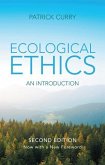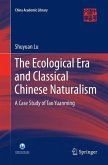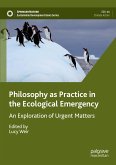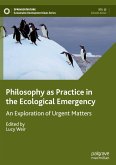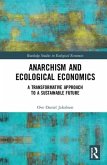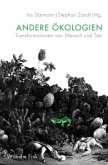Ecological thinking is the regulative principle for a theory of knowledge informed by feminism, multiculturalism, and other post-colonial theories. Drawing on ecological theory and naturalized epistemology, it interrogates the instrumental rationality and exploitation of people and places that western epistemologies of mastery legitimate, to generate a politics of knowledge sensitive to human and situational diversity.
How could ecological thinking animate an epistemology capable of addressing feminist, multicultural, and other post-colonial concerns? Starting from an epistemological approach implicit in Rachel Carson's scientific practice, Lorraine Code elaborates the creative, restructuring resources of ecology for a theory of knowledge. She critiques the instrumental rationality, abstract individualism, and exploitation of people and places that western epistemologies of masteryhave legitimated, to propose a politics of epistemic location, sensitive to the interplay of particularity and diversity, and focused on responsible epistemic practice.Drawing on ecological theory and practice, on naturalized epistemology, and on feminist and post-colonial theories, Code analyzes extended examples from developmental psychology, and from two "natural" institutions of knowledge production-medicine and law. These institutions lend themselves well to a reconfigured naturalism. They are, in practice, empirically-scientifically informed, specifically situated, and locally interpretive. With human subjects as their "objects" of knowledge, theyinvoke the responsibility requirements central to Code's larger project.This book discusses a wide range of literature in philosophy, social science, and ethico-political thought. Highly innovative, it will generate productive conversations in feminist theory, and in the ethics and politics of knowledge more broadly conceived.
Hinweis: Dieser Artikel kann nur an eine deutsche Lieferadresse ausgeliefert werden.
How could ecological thinking animate an epistemology capable of addressing feminist, multicultural, and other post-colonial concerns? Starting from an epistemological approach implicit in Rachel Carson's scientific practice, Lorraine Code elaborates the creative, restructuring resources of ecology for a theory of knowledge. She critiques the instrumental rationality, abstract individualism, and exploitation of people and places that western epistemologies of masteryhave legitimated, to propose a politics of epistemic location, sensitive to the interplay of particularity and diversity, and focused on responsible epistemic practice.Drawing on ecological theory and practice, on naturalized epistemology, and on feminist and post-colonial theories, Code analyzes extended examples from developmental psychology, and from two "natural" institutions of knowledge production-medicine and law. These institutions lend themselves well to a reconfigured naturalism. They are, in practice, empirically-scientifically informed, specifically situated, and locally interpretive. With human subjects as their "objects" of knowledge, theyinvoke the responsibility requirements central to Code's larger project.This book discusses a wide range of literature in philosophy, social science, and ethico-political thought. Highly innovative, it will generate productive conversations in feminist theory, and in the ethics and politics of knowledge more broadly conceived.
Hinweis: Dieser Artikel kann nur an eine deutsche Lieferadresse ausgeliefert werden.
Professor Code provides a rich and sensitive epistemology, an erudite yet eminently readable account of how we know and ought to behave. Her insights, arguments, and examples break new ground in helping us understand the dangers of autonomy, the role of advocacy, and the wisdom of ecological thinking. Anyone in ethics, epistemology, or feminist philosophy must read her book. Kristin Shrader-Frechette, University of Notre Dame


